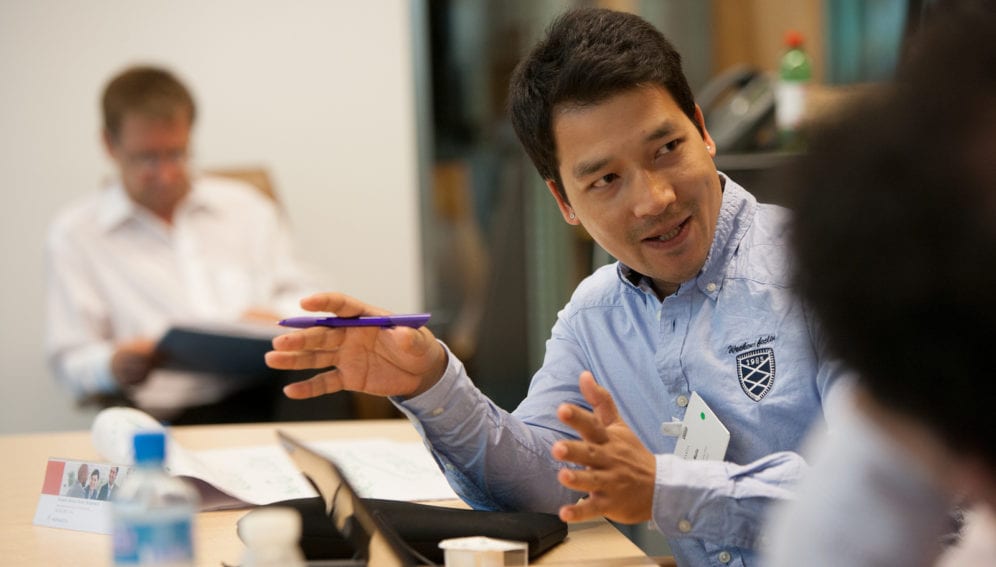Send to a friend
The details you provide on this page will not be used to send unsolicited email, and will not be sold to a 3rd party. See privacy policy.
A programme devoted to bringing Swiss researchers together with their counterparts in Africa, Asia and Latin America is to close at the end of June after 12 years.
The 12-year lifespan of the National Centre of Competence in Research (NCCR) North-South was determined from the start of the project, but observers say its demise will leave a void in cross-continental, policy-relevant research.
Since 2001, the NCCR North-South has built up a network of 1,250 researchers in 40 countries, and trained 230 PhD students and 40 postdoctoral researchers, mostly from the South.
According to a survey completed by the NCCR North-South last year, more than 90 per cent of the programme's 90 Southern alumni worked in the South after their training period.
The programme focused on policy-oriented research that crossed disciplines, producing 64 policy briefs as well as peer-reviewed research papers. The briefs provided insights and advice that could be applied to other countries, on subjects ranging from HIV/AIDS prevention in Ethiopian pastoral communities to the safe use of wastewater in Vietnamese agriculture.
The NCCR North-South had headquarters in Switzerland and eight regional offices (three in Africa, three in Asia and two in Latin America). The regional offices are now looking for alternative funding sources to continue their work.
“Development-oriented research cannot be meaningful without Southern researchers.”
Thomas Breu
For example, the South Asian office in Kathmandu has become the Nepal Centre for Contemporary Research, and has already secured funding for specific projects, says director Bishnu Upreti.
"We used to be a satellite office, now we're independent," says Upreti, adding that NCCR North-South's long-term training and "institutional back-up" were essential to earning that independence.
He adds that the centre will do its best to maintain existing collaborations, as well as expanding its scope to researchers beyond Switzerland, for example in Norway or the United Kingdom.
But without the overarching presence of NCCR North-South, some opportunities for North–South and South–South collaboration will disappear, says Upreti, describing it as a "great loss for researchers". "We had built trust and now we need to start again with other partners," he adds.
The programme's budget of 100 million Swiss francs (around US$107 million) was provided in large part by the Swiss National Science Foundation (SNSF) and the Swiss Agency for Development and Cooperation (SDC).
NCCR North-South's programme director Hans Hurni told the University of Bern's magazine Unipress last year that "It is regrettable that SNSF and SDC do want to continue supporting development research, but don't want to pursue important goals such as training, policy dialogue, pilot applications and institutional strengthening, as we did in the NCCR North-South."
But Dominique Simone Rychen, research adviser at SDC, says that the agencies are investing in these areas. In 2012, SDC and SNSF launched another long-term funding instrument, the Swiss Programme for Research on Global Issues for Development (r4d programme).
The programme focuses on five research areas and is funded with US$107 million for its first ten years. "Some of the NCCR North-South's specificities served as a model: it's partnership-based, inter- and trans-disciplinary," says Rychen, adding that the programme values scientific quality and relevance to development equally. Researchers involved in NCCR North-South are well placed to submit project proposals and compete for grants from this new funding programme, she says.
NCCR North-South's leaders also say that Switzerland should pay more attention to capacity-building in developing countries, and are lobbying for North-South research to be enshrined as a priority in the country's education, research and innovation strategy for 2017–2020.
"Sustainable development is decided in the global South, not in the North," says Thomas Breu, the NCCR North-South's coordinator at Switzerland's University of Bern.
"Development-oriented research cannot be meaningful without [Southern researchers]. It requires commitment from both sides in the long-term, not just for three or four years."














